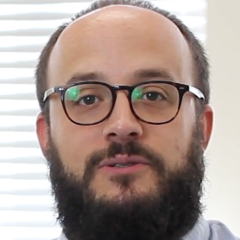You are not currently logged in. Please create an account or log in to view the full course.
Structure of the Eye - 2.15B
- About
- Transcript
- Cite
The Eye
In this course, Dr Matt Ivory (Cardiff University) introduces the eye, covering topics 2.15B-2.17B in the Pearson Edexcel GCSE Biology (9-1) Specification for Higher/Foundation Tier. We begin by: (i) relating the structure of the eye to its function, looking at its key features and the light-sensitive cells that allow us to see (Topic 2.15B); before (ii) understanding some common defects of the eye, including long-sightedness, short-sightedness, colourblindness and cataracts (Topic 2.16B); and (iii) finally treating these defects by various different methods (Topic 2.17B).
Structure of the Eye - 2.15B
In the first mini-lecture, we discuss the structure of the eye and how it relates to its function as a sensory organ, as brought up in topic 2.15B of the Pearson Edexcel GCSE (9-1) Biology specification. We discuss the parts of the eye, including the iris, pupil, cornea, lens, suspensory ligaments, ciliary muscles, retina, fovea, and optic nerve. We then move on to discuss the importance of rods and cones to detect and identify colour and low-light vision.
Cite this Lecture
APA style
Ivory, M. (2023, January 03). The Eye - Structure of the Eye - 2.15B [Video]. MASSOLIT. https://massolit.io/courses/the-eye-pearson-edexcel-gcse-9-1-in-biology-1bi0/structure-of-the-eye-2-15b
MLA style
Ivory, M. "The Eye – Structure of the Eye - 2.15B." MASSOLIT, uploaded by MASSOLIT, 03 Jan 2023, https://massolit.io/courses/the-eye-pearson-edexcel-gcse-9-1-in-biology-1bi0/structure-of-the-eye-2-15b

